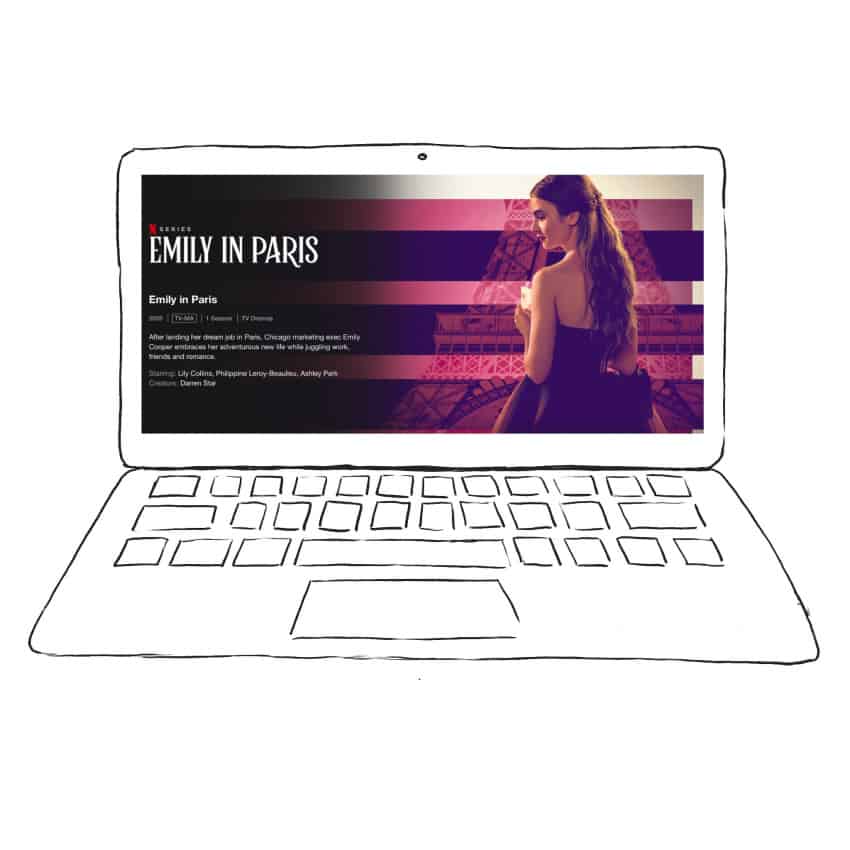
Oh, to be in a rom-com. You’ll bump into a grumpy but loveable Hugh Grant-lookalike while running an errand, only to later discover that he’s your company’s newest competitor, and get thrown into a whirlwind romance while answering the age-old question — career or love?
Netflix’s new show Emily in Paris follows the titular character as she gets her dream job in the City of Love. Throughout the 10-episode season, she reexamines her “American” views after clashing with the new culture both at work and in her love life.
While most reviews agree that the show is a guilty pleasure at best, at least it asks some interesting questions in its portrayal of the workplace.
Now, Emily in Paris is far from the first romantic comedy to mix career and love. After all, rom-coms are meant to show an idealized version of life. In a work-obsessed society, that includes the perfect job.
This show gives a decidedly millennial perspective on the concept of “the perfect job”.
Emily works in social media and is growing an audience as an influencer. From the first episode, it is clear that she is very invested in her work. It’s the reason she moves to a foreign country, after all, and she even explicitly says that working makes her happy, much to the bafflement of an older coworker.
Her attitudes about work are a clear portrayal of two perceived trends among millennial workers: a concept of work-life balance that is more akin to integration, and a prioritization of passion.
Work-life integration refers to younger generations’ preference for working outside of traditional offices and their hours, helped by technology. This flexibility theoretically allows people to fit work around their lives and not the other way around.
The trend towards prioritizing passion is just what it sounds like. As the famous saying goes — do what you love and you’ll never work a day in your life.
Emily’s passion for her job and ability to do it anytime does come with advantages. She is constantly getting inspiration for marketing campaigns from her outings, relationships and adventures, which creates a sort of synergy between her life and work.
However, her personal stake makes it hurt all the more when things don’t go according to plan, and she puts in a lot of extra time to make things work — as her whole relationship with Pierre in episode six goes to show.
She also finds herself always on the clock, working at should-be social events, and seems unable to log off even when she isn’t. After she gets a video of her best friend singing in episode eight, the culmination of a background storyline from her personal life, the first thing Emily does is show it to a client as a marketing pitch.
Emily does what she loves and has the technology to do it all the time, so she might end up working every day in her life.
Despite how Emily’s job is an ever-present worry for her throughout the season, the show fails to meaningfully deliver on its critique of young American’s views on work. By the end, Emily does not seem to have moved past her episode-one assertion that she loves working.
Who knows? If the show gets renewed, the blurry lines between her work and personal life might still catch up to her. She did just hook up with the longtime boyfriend of her friend-turned-client.
Even if not, it’s still interesting to see the rom-com genre exploring new work trends as they portray younger generations. For a better look at this, watch the 2018 Netflix original Set It Up, which is largely a story about millennials dealing with toxic workplace dynamics — it’s difficult to have love when you don’t have a life.
What does “the perfect job” mean to modern audiences? We’ll let the better shows and movies of tomorrow answer that. In the end, Emily in Paris never promised any depth or complexity, just pretty clothes and Parisian backgrounds.
—
Ana Cristina Camacho | Copy Editor
Graphic: Anh Phan | Design Editor
Leave a Reply